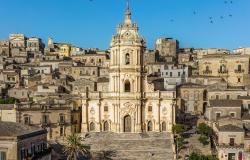«Realities that act in favor of the place: they deserve greater attention»
Councilor Andrea Volpe proposes the amendment to the regional law on tourism
The Italian pro loco system has a strong socioeconomic impact, which generates wealth and stimulates local economies. In Campania there are 556 out of 554 municipalities and they are fundamental for tourism promotion: they enhance, enhance and relaunch the excellence of the territories. The functions attributed to them and the great contribution in terms of social cohesion contribute decisively to improving the quality of life of local communities as well as for visitors.
This is where Andrea Volpe, regional councilor of the Italian Socialist Party – Free Campania – Noi di Centro – Noi Campani council group, signed and filed an amendment to the tourism law which concerns these non-profit associations formed by volunteers who are committed in activities aimed at promoting places, discovering and protecting local traditions, and valorising the products and beauty of the area.
«Communities within communities and for communities: the pro loco constitute a point of reference. In Italy, in the last twenty years, their number has doubled, showing how they represent a winning and convincing model, not at all obsolete, capable of satisfying the will of citizens to act at a local level in favor of society and in defense of its most genuine values”, explains Volpe.
More in detail, according to Volpe, if the Campania Region, with the regional law of 8 August 2014, n. 18 “Organization of the tourism system in Campania” in Chapter V, and in particular with articles 23, 24 and 25 wanted to recognize the role of the Pro loco, this regulatory intervention is not enough to give the right value to these forms of association also present in Smaller municipalities in internal areas that deserve more attention and more resources.
Hence the request for a change to the legislation to enhance these realities. More network and less bureaucracy: «A way to put a very important issue at the center of the political debate and understand, together with colleagues and all interested parties, how to support the process that regulates the Pro Loco and how to streamline the related bureaucratic procedures. Lengthy for a silent world of volunteers which involves a waste of time and resources. This law is also an opportunity to stimulate participation and provide for their inclusion in tenders”, concludes Volpe.
The desire is to enhance the commitment of these sentinels of the territory, in their continuous action of tourist animation and promotion of the natural, environmental, artistic, historical, cultural, folkloristic, social and environmental resources of the regional places.
THE DATA According to the latest findings of the Association of artisans and small businesses (CGIA) of Mestre-Centro Studi Sintesi, the pro loco system represents a truly typically Italian phenomenon characterized by approximately 6,300 trade associations, on average 0.79 per every Municipality, and by over 300,000 volunteers. Among these associations, approximately 4,700 are engaged in the valorisation and management of the local material heritage, 5,500 carry out communication and promotion activities of local activities and 57% manage the tourist information office of the Municipality in which they are established. Furthermore, 57% of pro loco associations carry out social support or solidarity interventions, 81% collaborate with public administrations, 36% organize historical re-enactments, 53% organize art exhibitions and 20% manage or participate to the management of museums, archaeological sites and libraries.
HISTORY The birth of the pro loco dates back to the end of the nineteenth century when citizen committees began to be created which in their name adopted the preposition “pro” in front of the name of the locality where they operated. In the early years of the twentieth century they began to spread throughout the national territory, but the Second World War soon stopped their initiatives. With the end of the war these associations resumed their constant proliferation and with the decree of the Minister of Tourism and Entertainment, published in the Official Journal no. 22 of 27 January 1965, the register of pro loco associations was established at the same Ministry of Tourism and Entertainment. Even today they are regulated by different regional laws and are financed by these bodies to varying degrees.
More strength therefore to the Pro Loco and their members, a national network and a system, that of the UNPLI, which represents and assists them, making them, in many areas of Campania, extraordinary tourist promoters and often a great resource for the territory in which they insist.
For Latest Updates Follow us on Google News





